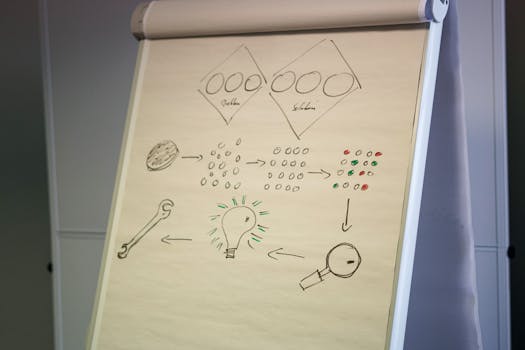Feeling like you're drowning in a sea of your own knowledge? Got years of experience, countless documents, notes scattered everywhere, but struggling to actually use it all effectively? You're not alone! Many experts, consultants, and business owners face this challenge. Your brain holds immense value, but it's locked up, hard to access quickly, and even harder to share.
What if you could take all that brilliant chaos and transform it into a clear, accessible, and powerful resource? What if you could build your very own AI assistant, trained specifically on your expertise, ready to answer questions, automate tasks, and amplify your impact?
Good news: you can! And the first crucial step is bringing order to your knowledge. With a platform like MindPal, this process is easier than you think. Let's dive in.

Why Organizing Your Knowledge is Step #1 for AI
Think of building an AI assistant like building a house. You wouldn't just start throwing bricks and wood together randomly, right? You need a solid foundation and a clear blueprint. Organizing your knowledge is that foundation.
When your expertise is structured, the AI can:
- Understand Context: It learns the relationships between different pieces of information.
- Retrieve Accurately: It can find the right information quickly when asked a question.
- Generate Relevant Responses: Its answers are based on your specific knowledge, not generic web data.
- Reduce Errors: A clear knowledge base minimizes the chances of the AI making stuff up (we call those "hallucinations" in the AI world!).
Without organization, you're essentially feeding the AI a messy pile of data, hoping it figures things out. Spoiler: it won't work very well!
Taming the Knowledge Beast: Methods for Structure
Okay, so organization is key. But how do you actually do it? Don't worry, you don't need a PhD in library science. Here are a few effective methods:
- Mind Maps: Great for visual thinkers! Start with a central topic (your core expertise) and branch out with related concepts, sub-topics, and key details. This helps you see the connections.
- Outlines: A classic for a reason. Use headings and subheadings to create a hierarchical structure (like chapters and sections in a book). This works well for linear processes or structured information.
- Simple Notes & Documents: Even just organizing your existing documents into logical folders and using clear naming conventions is a huge step forward.
- Knowledge Graphs (Conceptual): Think of this as a more advanced mind map where you explicitly define the relationships between concepts (e.g., "Concept A is part of Concept B," "Process X leads to Outcome Y"). While you might not build a visual graph yourself, thinking this way helps structure your info.
The goal isn't perfection, it's clarity. Identify the core concepts, the key processes, the important facts, and how they relate to each other within your field.

Enter MindPal: Your AI Knowledge Partner
This is where a platform like MindPal shines. It's designed to help you easily gather, organize, and utilize your expertise to build powerful AI agents.
Importing Your Expertise into MindPal
MindPal makes it simple to feed your knowledge to your future AI assistant. You can easily add information through:
- File Uploads: Upload your existing documents (like PDFs, Word docs, etc.).
- Website URLs: Simply paste links to relevant web pages, and MindPal can learn from their content. You can even fetch sub-pages automatically!
- Notes: Create and edit dynamic notes directly within MindPal – perfect for information that changes frequently or needs quick updates.
MindPal processes this information, breaking it down into manageable chunks and storing it in a way your AI agent can easily search and understand. You can even fine-tune how MindPal processes your data using settings like chunk size and overlap for optimal results. Learn more about Knowledge Sources in MindPal.
The Power of a Structured Knowledge Base for AI
Using MindPal's Knowledge Sources feature creates a dedicated, organized "brain" for your AI agent. The benefits are huge:
- Domain-Specific Expertise: Your agent answers based on your data, making it a true expert in your niche.
- Consistency: Ensures the agent provides reliable and consistent information.
- Efficiency: Allows the agent to find relevant information much faster.
- Up-to-Date Info: Easily update notes or re-learn URLs to keep your agent current.
Defining Your AI Assistant's Scope and Purpose
Once your knowledge is getting organized, you need to tell your AI assistant what it's supposed to do. Is it a customer support bot? A research assistant? A content generator?
MindPal helps you define this using System Instructions. This is where you give your agent its persona, background, goals, and rules. You define:
- Background: Who is the agent? What is its role and expertise?
- Desired Output Format: How should it structure its responses? Are there specific formats to follow?
Clear instructions, combined with your organized knowledge base, create an AI assistant that is focused, capable, and aligned with your goals.

Real-World Inspiration
Knowledge organization isn't just an AI thing; it's everywhere! Think about:
- Libraries: Books organized by genre and author using systems like Dewey Decimal.
- Wikis (like Wikipedia): Information structured with internal links, categories, and clear articles.
- Databases: Storing customer information or product inventory in structured tables.
These systems turn vast amounts of information into usable resources. Your AI assistant does the same for your expertise.
Building Your AI Assistant with MindPal
With your knowledge organized and imported into MindPal, and clear instructions defined, you're ready to build! MindPal provides the tools to create:
- Individual AI Agents: Specialized assistants for specific tasks (AI Agent Builder).
- Multi-Agent Workflows: Connect multiple agents to automate complex, multi-step processes (AI Workflow Builder).
Imagine having an AI that can draft emails based on your specific sales process, answer client questions using your company's knowledge base, or even help onboard new team members according to your internal procedures!
Conclusion: Your Expertise, Amplified
That mountain of knowledge doesn't have to be a source of stress. By taking the time to organize your expertise and leveraging a platform like MindPal, you can transform chaos into clarity. You can build a powerful AI assistant that acts as an extension of your own brain – always available, incredibly efficient, and trained specifically on what you know best.
Stop letting your valuable knowledge sit idle. Start structuring it, feed it into MindPal, and unlock the potential of your very own AI workforce.
Ready to turn your expertise into a powerful AI assistant?
What's the first piece of expertise you'd want to organize for your AI assistant? Share your thoughts in the comments below